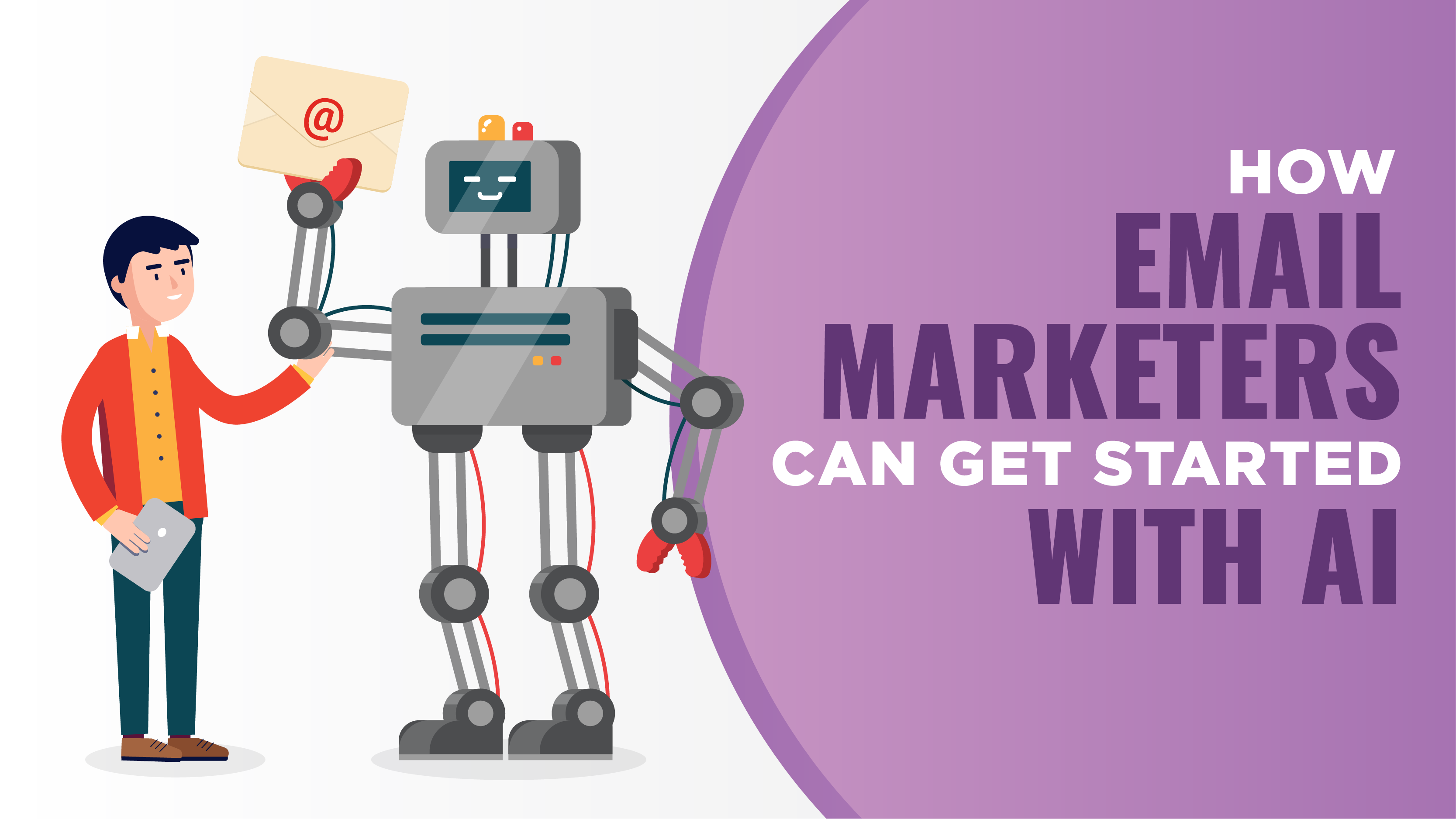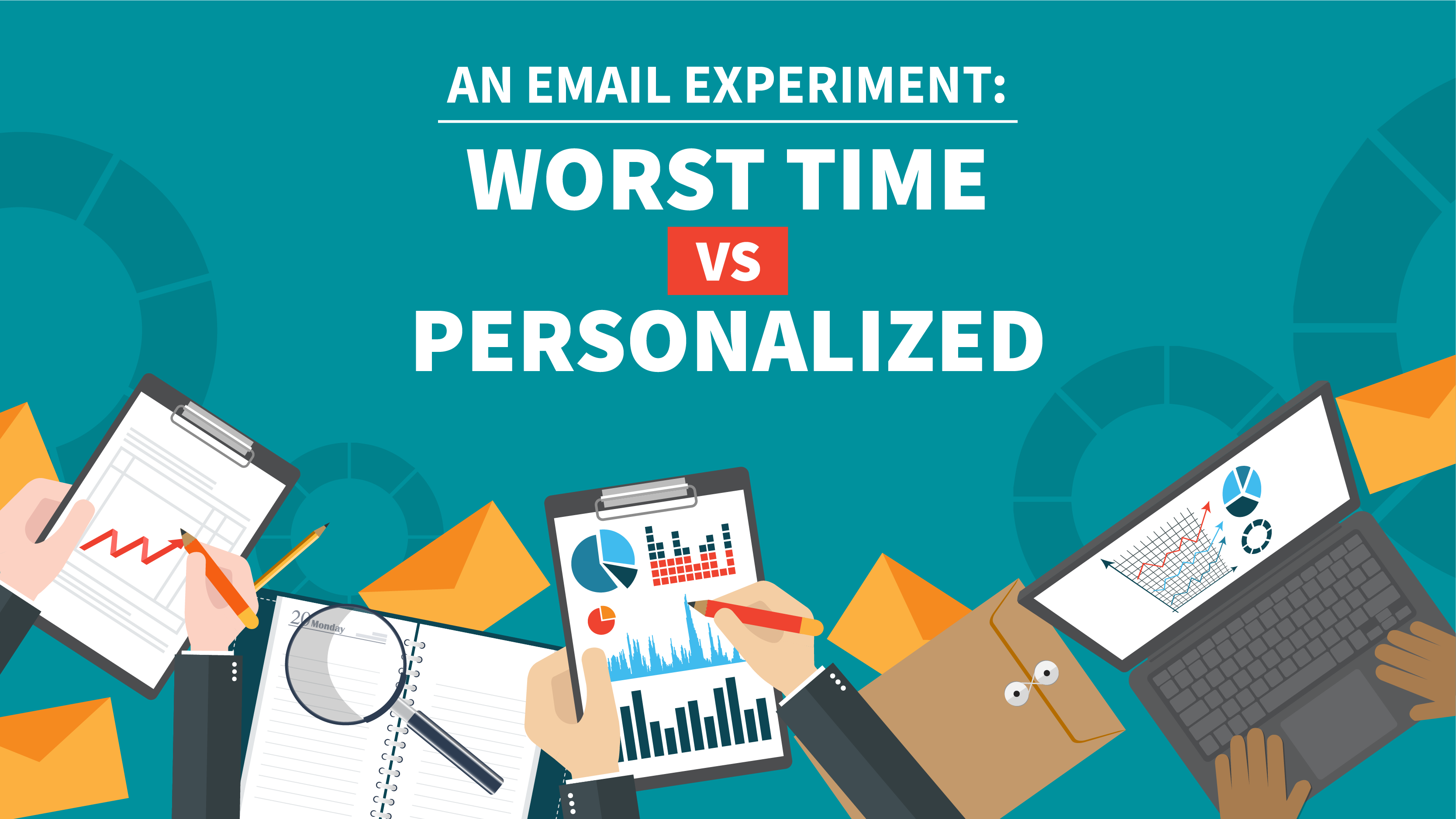Imagine this: Instead of sitting in a room brainstorming email subject lines or setting up countless A/B tests or spending hours each month pulling metrics, AI tools could handle these tasks and others, with minimal human involvement and at scale.
The future may be closer than you think.
AI is the science of making machines smart, and the technology powers everything from Amazon recommendations to self-driving cars. This same technology can be used to improve email performance and streamline your email marketing operations.
Even better, getting started with AI isn’t as hard as you might think—and getting started now can give you a huge competitive advantage if you’re running email marketing campaigns.
1. Find email marketing use cases.
AI can’t do everything. But it can do some tasks at superhuman levels.
To get started with it, you’ll want to identify possible use cases in your particular role or business. As an email marketer, chances are you do some of the following tasks:
- Draft email messages.
- Craft subject lines.
- A/B test subject lines and email copy.
- Create workflows.
- Analyze and report on email performance.
List out all the activities related to email marketing that you do every week or month. Then, list out how much time it takes to do each task. You’ll quickly be able to identify the most time-intensive tasks—and these are the logical use cases to start with.
From there, you’ll want to do some research into what (if any) AI technology exists to address these tasks. This step requires patience and a willingness to experiment with different solutions.
To help you get started, here are a few AI-powered tools for different email marketing use cases:
- Seventh Sense automatically optimizes email send times.
- Phrasee writes email subject lines better than humans.
- Siftrock automatically manages B2B email replies and databases.
2. Conduct initial research.
Google is your best friend when it comes to initial research. Consider some of the following types and formats of searches:
- “AI for email marketing”
- “AI for email optimization”
- “AI for send time optimization”
- “AI in email marketing”
To help, we’ve also created a free assessment tool to discover and rate additional use cases and vendors—AI Score for Marketers.
3. See which solutions integrate with your existing platforms.
Artificial intelligence tools and capabilities may integrate or be baked into your current marketing tools, such as automation and CRM systems.
These existing platforms represent a golden opportunity to get started with AI using platforms you already know and understand.
If your existing platforms don’t use AI, ask your providers how they plan to integrate AI into their upcoming product roadmap. That’ll help you get a better sense of how AI is going to impact the platforms you’re using daily.
4. Demo and test tools.
You’ll want to make sure you get your hands dirty with AI tools. Like with any software, demos and trials are a must.
There's no substitute for this step. AI has a lot of hype and buzz: it's easy to get sucked in by bold claims about capabilities.
This is why having a specific use case you can bring to vendors is essential. You'll be able to tell readily if the solution does what you need it to do.
5. Start with a pilot project.
Once you have a better understanding of what’s out there, you may want to adopt AI for one or more use cases. That’s great, but make sure you do it the right way.
You want to start with a pilot project that has a high chance of successfully optimizing one of your current tasks—and ideally doesn’t cost a significant amount to implement. That gives you the best chance of a successful pilot, which then creates buy-in internally for larger projects across different business areas.
Make AI Your Competitive Advantage
This is just the beginning. We’re still in the very early days of AI adoption in marketing and sales.
If you want to accelerate AI education and adoption, I encourage you to join us at the upcoming Marketing Artificial Intelligence Conference (MAICON).
MAICON is designed to help marketing leaders truly understand AI, educate their teams, garner executive support, pilot priority AI uses cases, and develop a near-term strategy for successfully scaling AI.
MAICON has 40+ sessions and 60+ speakers from companies like Amazon and Softbank Robotics.
Learn more here.





